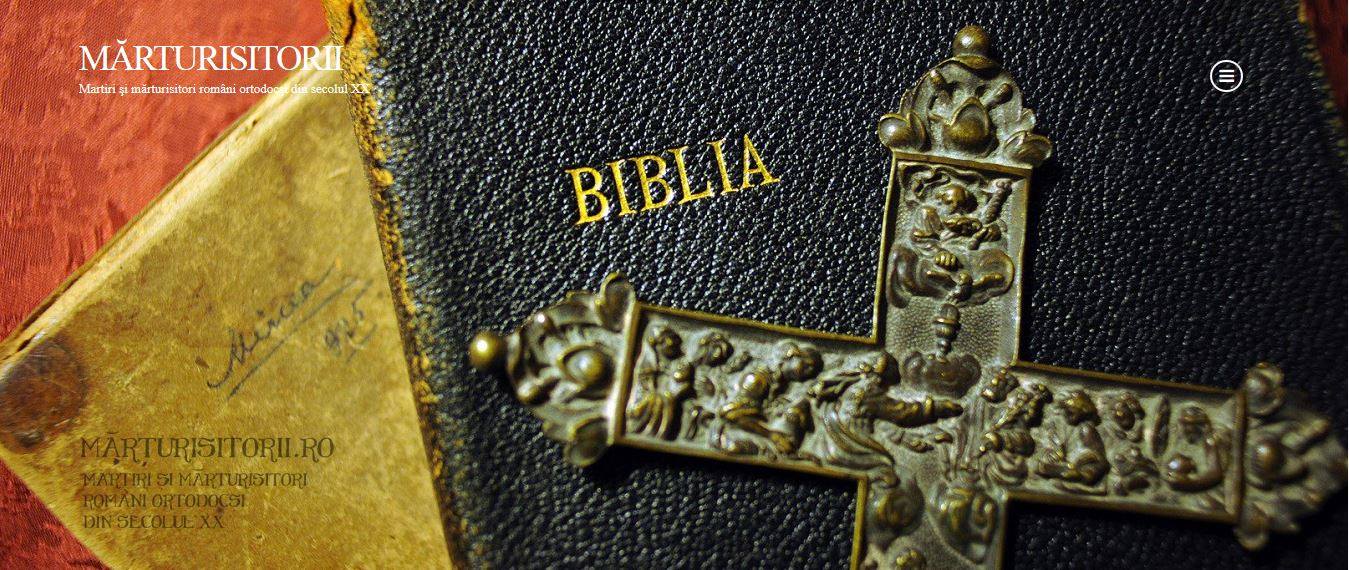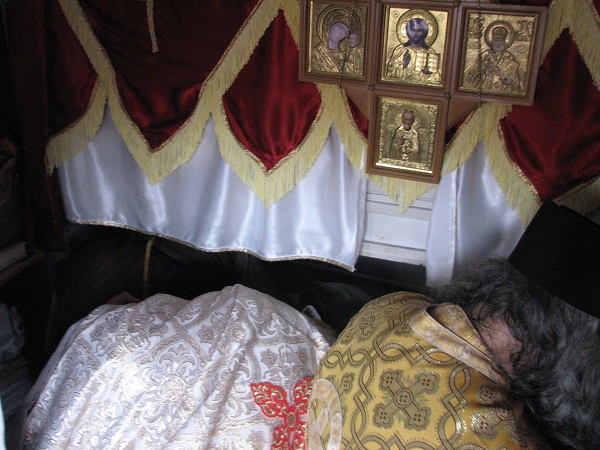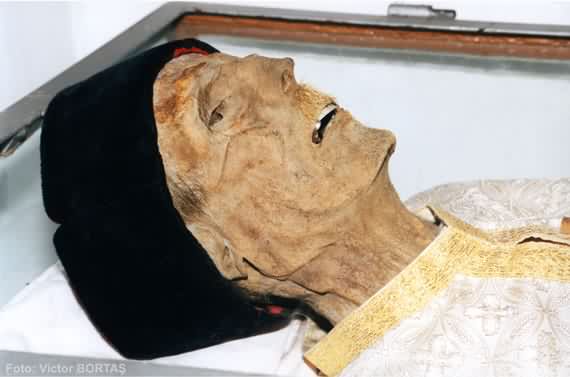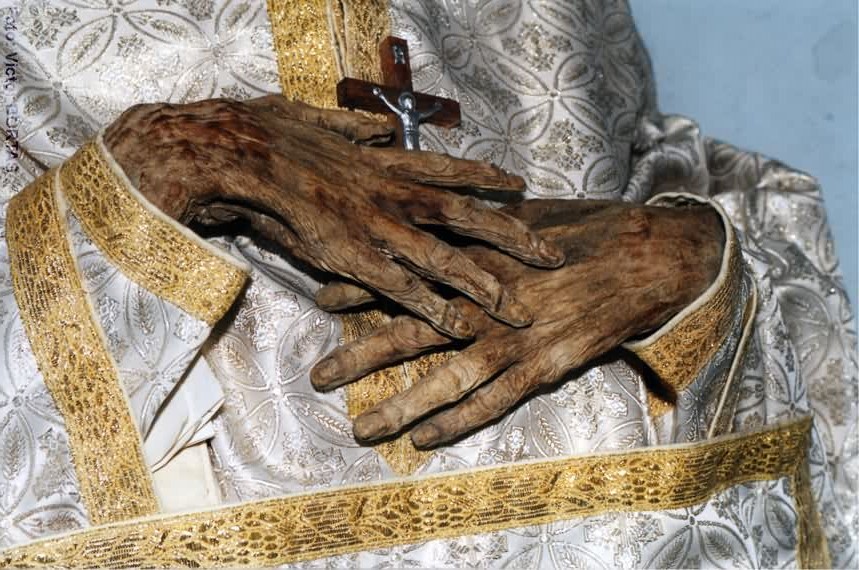Holy Relics of Priest Ilie Lacatusu, Romania
The body of Father Ilie Lacatusu (†1983) was exhumed on 30th of September 1998. It was found in an incorrupt state, lacking putrefaction, and had the scent of chrism. In the history of the Church, only one category of people recieved this gift: the Holy People, the Saints.
Fr. Ilie was born on December 8, 1909 in the village of Crapaturile, Valcea, Romania. He was the second child of seven of his family. They were simple country people, but had strong faith in God. His father was a Church singer, and this fact played an vital role in bringing the future Fr. Ilie closer to the Church, while he was still in his early years. Following his conscience, after he finished the school, he went to the “St. Nicholas” Theological Seminary, which he graduated with Honors (1923-1930). He then enrolled in the Bucharest Theological Faculty (1930-1934).
On July 5, 1931 he married Ecaterina Popescu, a Romanian teacher. He was ordained priest in September 1934, serving in the Osica de Jos parish, Caracal district, and then in the village of Buicesti, Valcea.
For the years to come the life of the father would flow quietly, as he took care of his family. Together with his wife, they had 5 children.
In 1952 a wave of communist arrests amoung the Church priests sent Fr. Ilie in a forced labour camp, at one of the biggest Romanian construction projects at that time. Within a year, because of the deterioration in his health, he was moved to Targu-Ocna. We must say that compared with the Pitesti jail where there were many victims amoung the prisoners, the religious life in the Targu-Ocna jail reached high levels of spiritual enrichment. This was due to the extreme sufferings and the difficult, harsh and oppressive times in the communist jail. But for the strong ones, these conditions were good for prayer, good for getting themselves closer to God. During this time, Fr. Ilie also helped the other prisoners – this would be a period of intense spiritual enrichment for him.
He is released in 1954, but in 1959, the communist persecution apprehended him once again and sent him to another forced labour camp, this time to the Periprava camp. His health continued to deteriorate. During the 1959-1964 period he was forced to stay in Bolintin, where he was obliged to work as a brick mason. He would serve the Holy Liturgy again in 1965 in the villages of Gardesti, Teleorman and Rasuceni, Ilfov. Retiring in 1978, He went to God on July 22, 1983, after asking his loved ones to bury his wife next to him in the cemetery, if she passes away 15 years later.
And indeed, 15 years later his wife would pass away! At that point, his grave was then opened and his body was to be found incorrupt, with the scent of chrism.
Father Ilie, pray for us!
Source: MARTURISITORII
VIDEO: Father Nicolae Barbu, the one who discovered the relics of Ilie Lăcătuşu, Martyr of Romania













